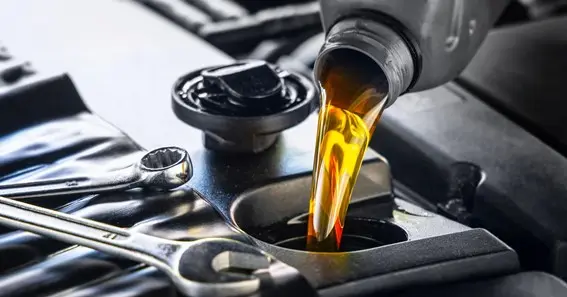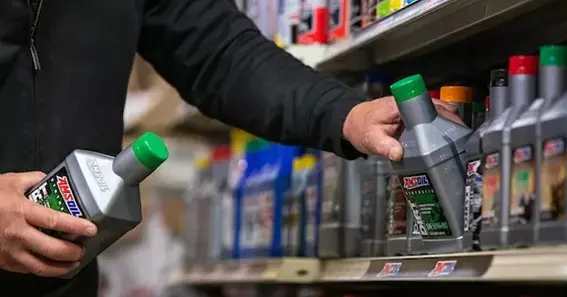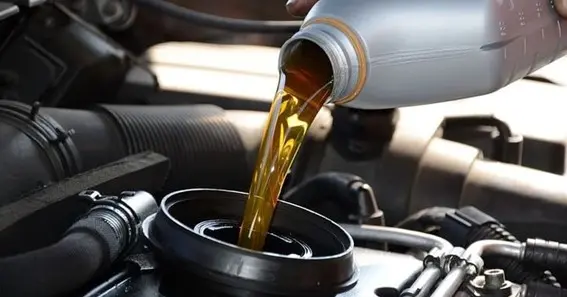What is the difference between 5W20 and 5W30? The “5W” indicates the viscosity value when this oil is cold (‘W’ signifies winter), whereas “20” depicts it when it is hot. 5W30 indicates lower viscosity of oil at higher temperatures. Let us know more about the details on engine protection security for both cases:
What Is The Difference Between 5w20 And 5w30?
5W20 and 5W30 represent two varieties of motor oils found in most vehicles. An automobile engine would stand still without motor oil. Motor oils help for lubrication purposes, so the engine segments do not produce a lot of friction, leading to their efficiency. It is essential to deep-dive into the meaning and respected difference between 5W20 and 5W30. 5W20 motor oil, a multi-grade oil, can effectively work in various temperature ranges.
Thinness characterizes this kind because this property enables more effortless movement at low temperatures. During winter, one may start an engine with a higher safety guarantee due to a lower quantity. 5W30 engine oil is also a multi-viscosity oil but is slightly thicker than 5W20 at operation temperatures. Like 5w20, “5w” shows its fluidity at lower temperatures, while “30” shows its thickness at higher temperatures. In heavy loads, 5W30 oil offers improved protection at temperatures, which makes it the best in all respects.
The reader will know more about the difference between 5W20 and 5W30 post reading this above paragraph.
Viscosity Between 5w20 And 5w30 At Operating Temperatures

At elevated temperatures, 5W20 has a lower viscosity than 5W30, allowing it to flow faster and improve gas mileage. However, it may provide less protection under high heat conditions. At the same time, 5W30 offers more excellent protection under high temperatures because it is thicker when it operates and can be helpful mainly for vehicles that work in hotter environments or are loaded more heavily.
Fuel Efficiency Of 5w20 And 5w30
5W20 is a thinner oil that lubricates engine parts more efficiently and reduces friction, resulting in low fuel consumption. Vehicles running on 5W20 consume slightly less gasoline than those using heavier oils. Comparably, the 5W30 has a lower fuel efficiency because its thickness makes it sticky, thereby causing more resistance, which may decrease the miles covered per gallon.
Engine Protection Security For 5w20 And 5w30
5W20 provides proper security for engines that can undergo limited extreme conditions. It is recommended for everyday driving in mild weather conditions. Because of its higher viscosity, 5W30 provides better protection for engines that work under heavy conditions, like towing or carrying heavy loads, or even in scorching climates where high temperatures can thin less viscous oils.
Temperature Performance Of 5w20 And 5w30

The 5W20 will be great in cold weather because it has very low cold-temperature viscosity. This means that it lubricates quickly and reduces wear during engine starting on icy days. The 5W30 is good at lower temperatures, too, but it has an edge when it comes to maintaining its protective abilities in hotter weather.
You can continue reading this article about the difference between 5W20 and 5W30 for better knowledge about this topic.
Application And Manufacturer Recommendations Of 5w20 And 5w30
Most modern cars specify 5W20 to meet emission standards and efficiency goals, making it standard for many automobiles. Commonly recommended for newer, smaller engines designed with tighter tolerances for improved fuel economy, the 5W20 is highly recommended amongst automakers.
Oil Change Frequency Of 5w20 And 5w30
Because it is relatively thin, the 5W20 might need more frequent oil changes, especially for automobiles experiencing harsh driving conditions. Nonetheless, please check the manufacturer’s maintenance timetable. Compared to 5W20, its counterpart, 5W30, is more challenging in high-temperature settings, which makes it last longer before requiring fresh oil. Consequently, this saves money and time spent on servicing the car regularly.
Load-Bearing Capacity Of 5w20 And 5w30
On one end of the spectrum, 5W20 is good for moderate driving situations, while on the other, it may prove inadequate during heavy loads or when under intense pressure because it is thinner. Due to its increased viscosity and improved ability to carry heavy loads, 5W30 would be more appropriate for vehicles carrying heavy loads all the time that are used in towing or subjected to high-speed driving conditions.
Environmental Considerations For 5w20 And 5w30
The 5W20 oil brand can also help reduce greenhouse gas emissions by contributing to better fuel efficiency. The brand is used in engines meant to have fewer adverse environmental impacts by following strict car emissions guidelines. Although 5W30 is not as effective when it comes to fuel mileage, it still works to protect the engine, thereby promoting its durability and minimizing environmental waste sites through engine longevity.
Conclusion
Post-reading the above post about the difference between 5W20 and 5W30, the selection of 5W20 and 5W30 motor oils for one’s car depends on driving conditions, climate, and the car manufacturer’s specifications. 5W20 would be better suited because it has excellent gas mileage performance, which makes it suitable in low-temperature areas where normal road use is expected, while 5W30 offers greater engine protection in high-temperature or severe driving situations.
FAQ
Can 5w30 Be Used Instead Of 5w20?
One should always use the recommended oil whose manufacturer is suitable for their car. If changing from 5W20 to 5W30 under hot weather conditions, you might consider this type due to its better protection and a potential slight decrease in fuel utilization.
What Happens If I Mix The Two?
Mixing them and selecting one type according to the manufacturer is essential.
Is The 5w20 Suitable For High-Mileage Cars?
The manufacturer can use 5W20 in cars that have covered many miles but mostly prefers 5W30 for older engines because it provides better protection.
Does 5w30 Last Longer Than 5w20?
Compared to 5W20, 5W30 could extend oil change intervals longer, making it suitable for high temperatures and heavy loads.
Which Oil Is Better For Cold Starts, 5w20 Or 5w30?
They both do well in cold starts, but 5W20, owing to its lower viscosity at freezing temperatures, has a slight advantage, which makes lubrication faster and causes less wear during engine start-up.
What Will Happen If Unfortunately, There Is A Mixup Between 5W30 And 5W20?
Immediately there would be no issue, but in the long term, it leads to friction-related problems.
Sources:
https://www.quora.com/Will-it-hurt-my-car-if-I-use-5W30-instead-of-5W20










